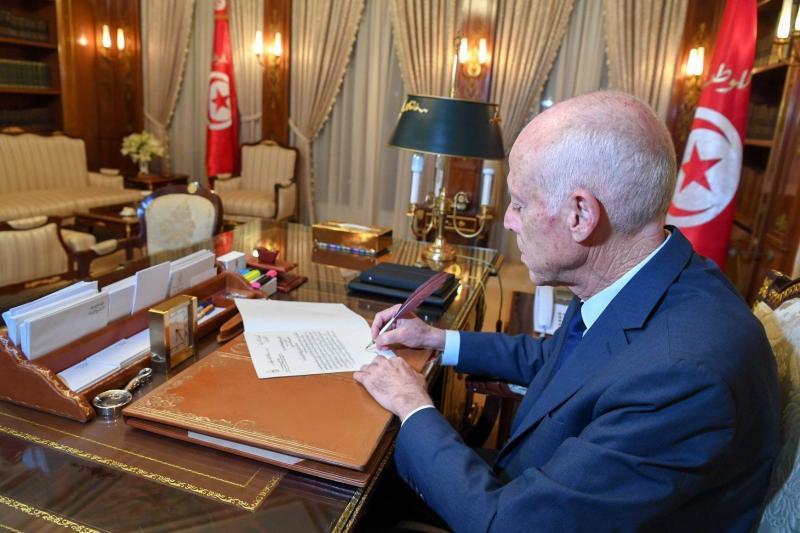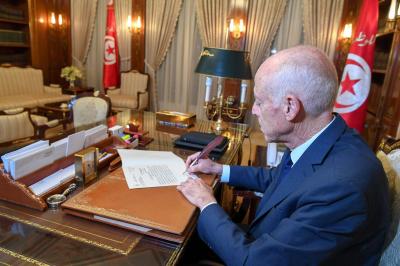The Tunisian presidency has provided details regarding the suspicious envelope that arrived at the Carthage Palace.
On Thursday evening, the Tunisian presidency issued a statement revealing the details of the suspicious envelope received at the palace last Monday. The presidency explained that on January 25, a special mail addressed to President Kais Saied was received, in the form of an envelope that did not bear the sender's name. It noted that the Director of the Presidential Office opened the envelope and found it empty of any written content, but upon opening it, her health deteriorated, leading to a state of faintness and nearly complete loss of vision, in addition to a severe headache. The statement pointed out that a staff member in the Presidential Office was present during the incident and experienced the same symptoms, albeit to a lesser extent.
The statement indicated that the envelope was put into a shredding machine before it was decided to send it to the Ministry of Interior, noting that it was not possible to determine the nature of the substance inside. It was reported that the Director of the Presidential Office went to the military hospital for necessary examinations to understand the sudden health deterioration.
The statement clarified that the presidency did not publish news of the incident on the same day to avoid provoking public opinion and causing confusion; however, the news circulated on social media, necessitating clarification. It mentioned that the President is in good health and was not harmed.
It is worth noting that this is not the first time there have been discussions about an alleged poisoning attempt against President Kais Saied. The Tunisian newspaper "Asharq Al-Awsat" previously reported in August last year that a bakery worker in the Bir El Bey area of the capital revealed to security units a complete plot that a businessman had attempted to involve him in to assassinate President Kais Saied.
The newspaper indicated at the time that a businessman tried to entangle the bakery owner in a plan to poison the quantities of bread purchased from the bakery by enticing the worker with a sum of 20,000 Tunisian dinars in exchange for executing the operation, but he refused and disclosed the plot. The newspaper relayed that the special anti-terrorism units in Tunisia confirmed they were investigating the matter and uncovering the cells working to target the president.
However, the spokesperson for the primary court in Tunisia, Mohsen Dali, announced after the incident published by the newspaper that President Kais Saied was not concerned with the rumors about an attempted poisoning, clarifying that it involved a dispute between two bakeries in the context of unfair competition. A responsible source in the Tunisian presidency also denied the rumors circulating at that time regarding a plot to assassinate President Kais Saied.




